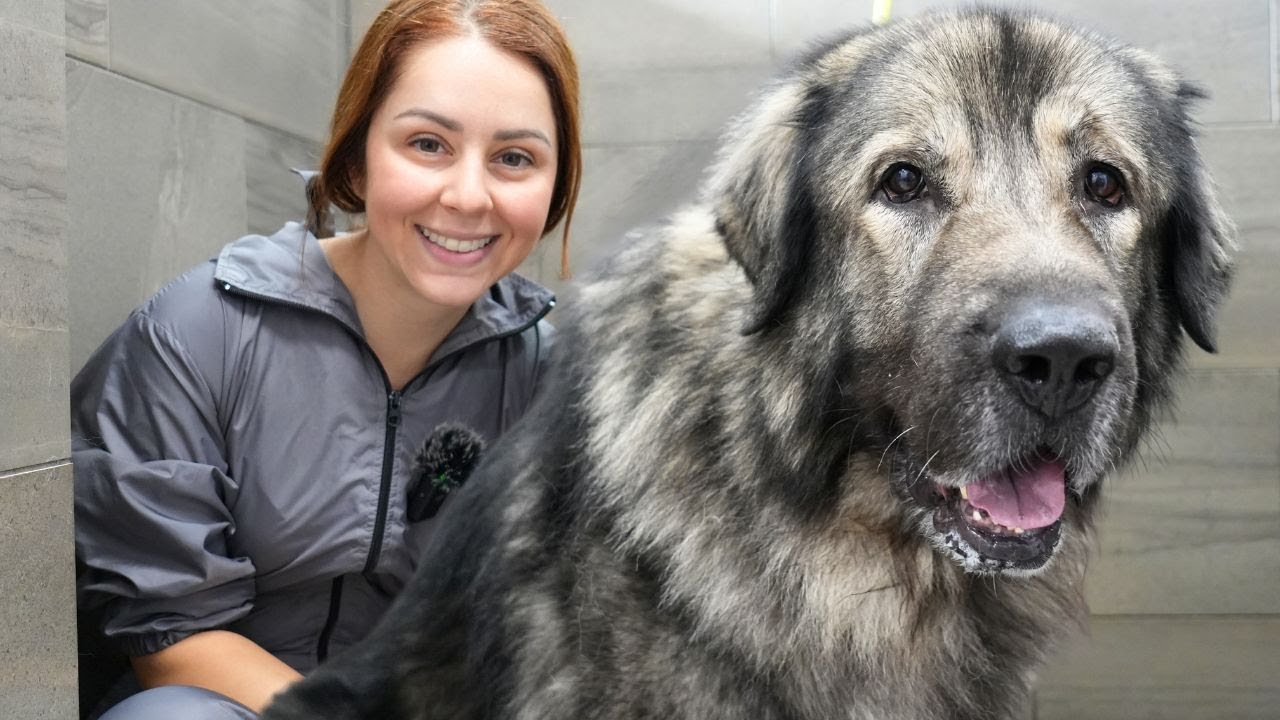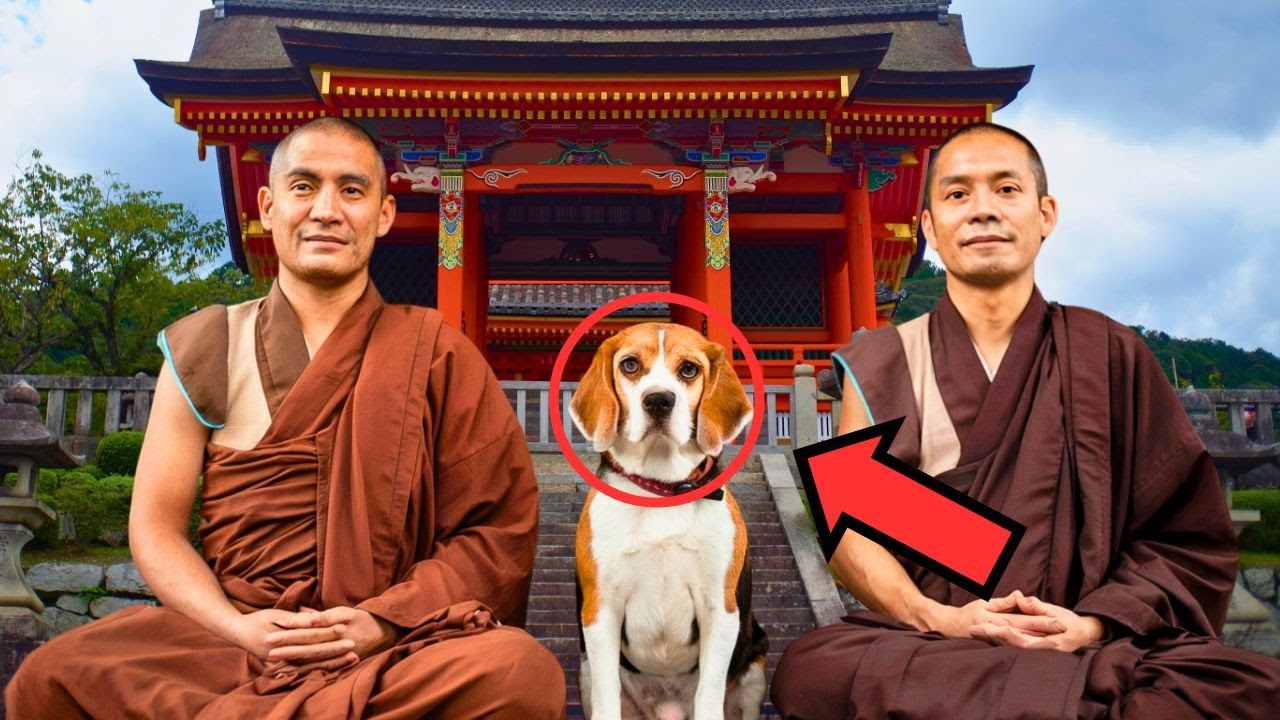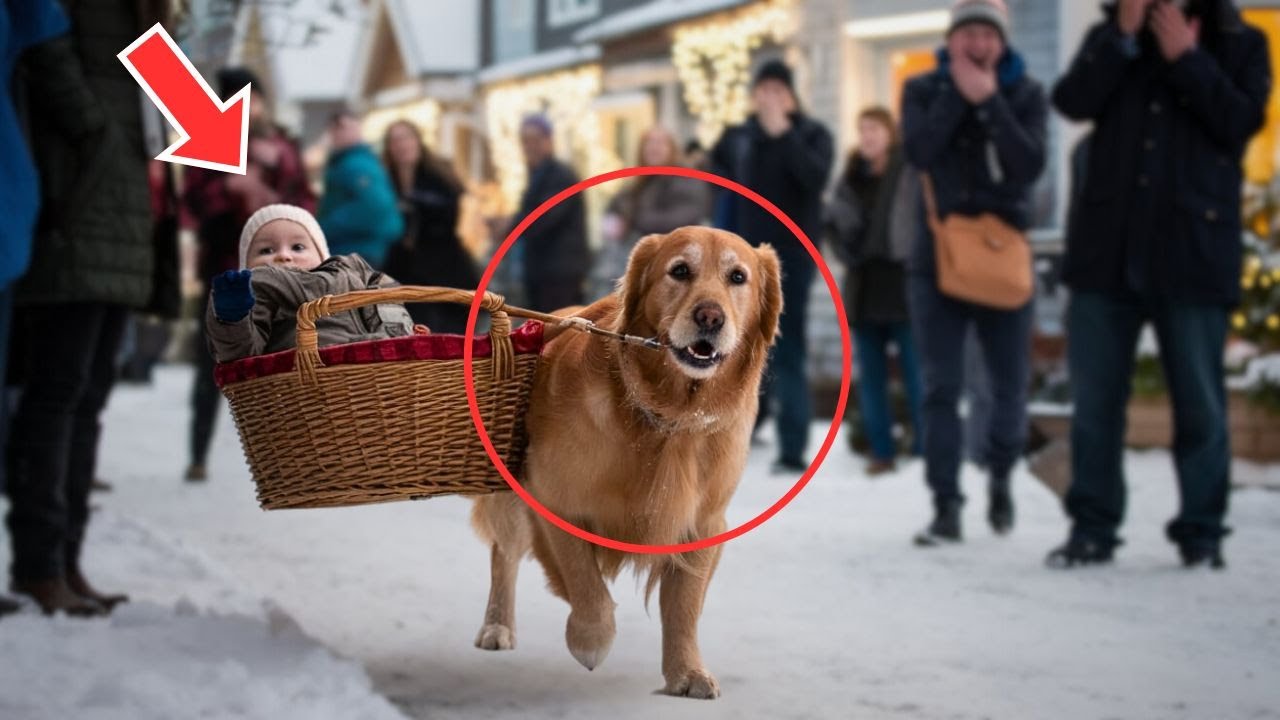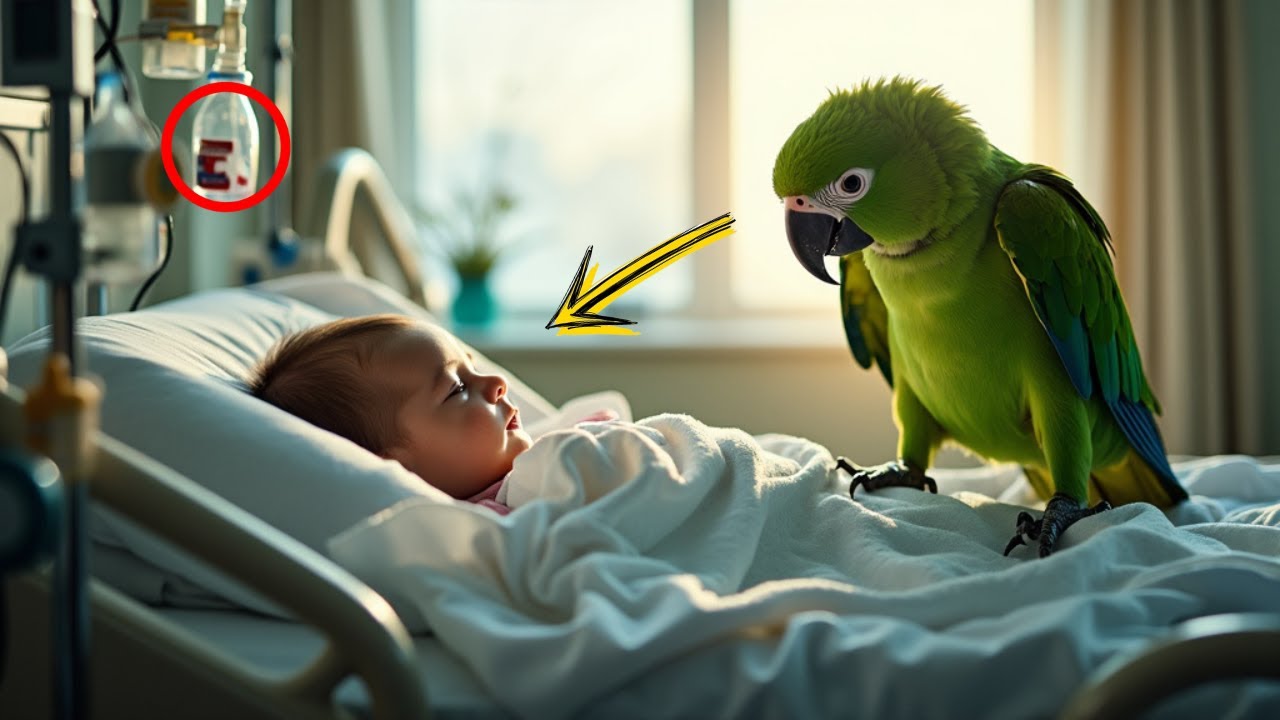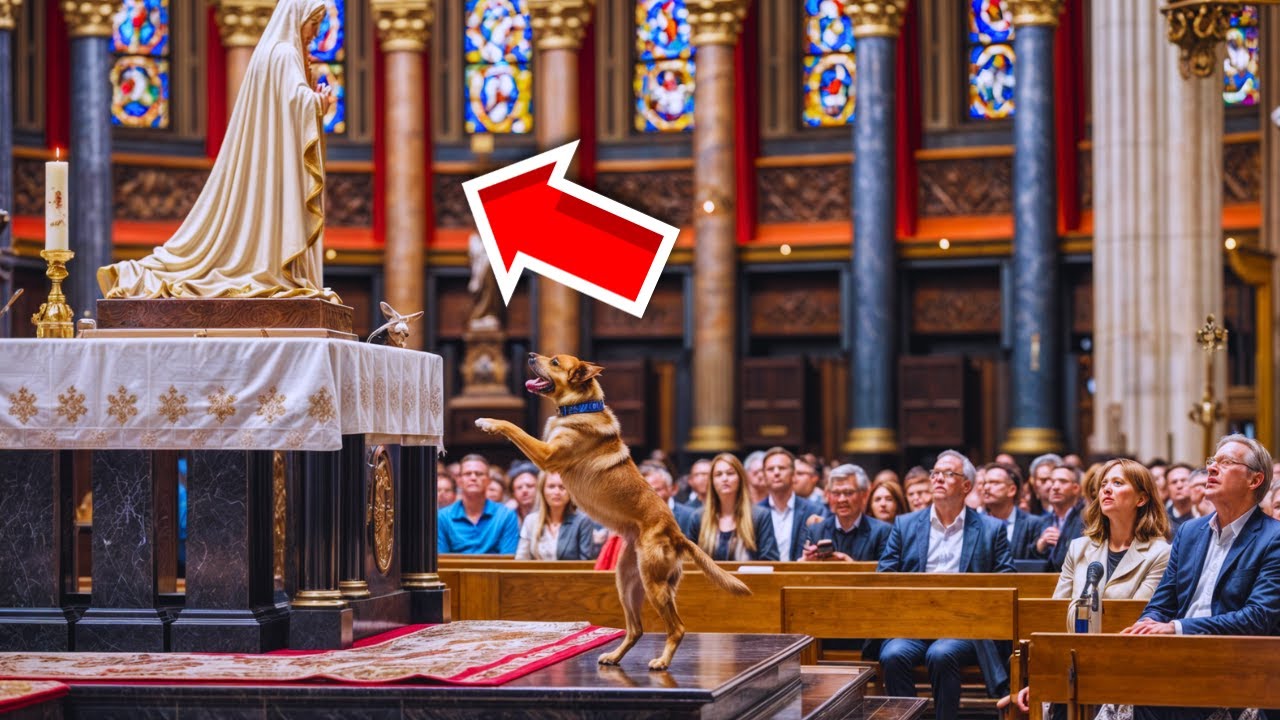Very striking in his suit of red and brown stylishly finished off by that long elegant tail, in Central America, there can only be one.
Meet the Squirrel Cuckoo
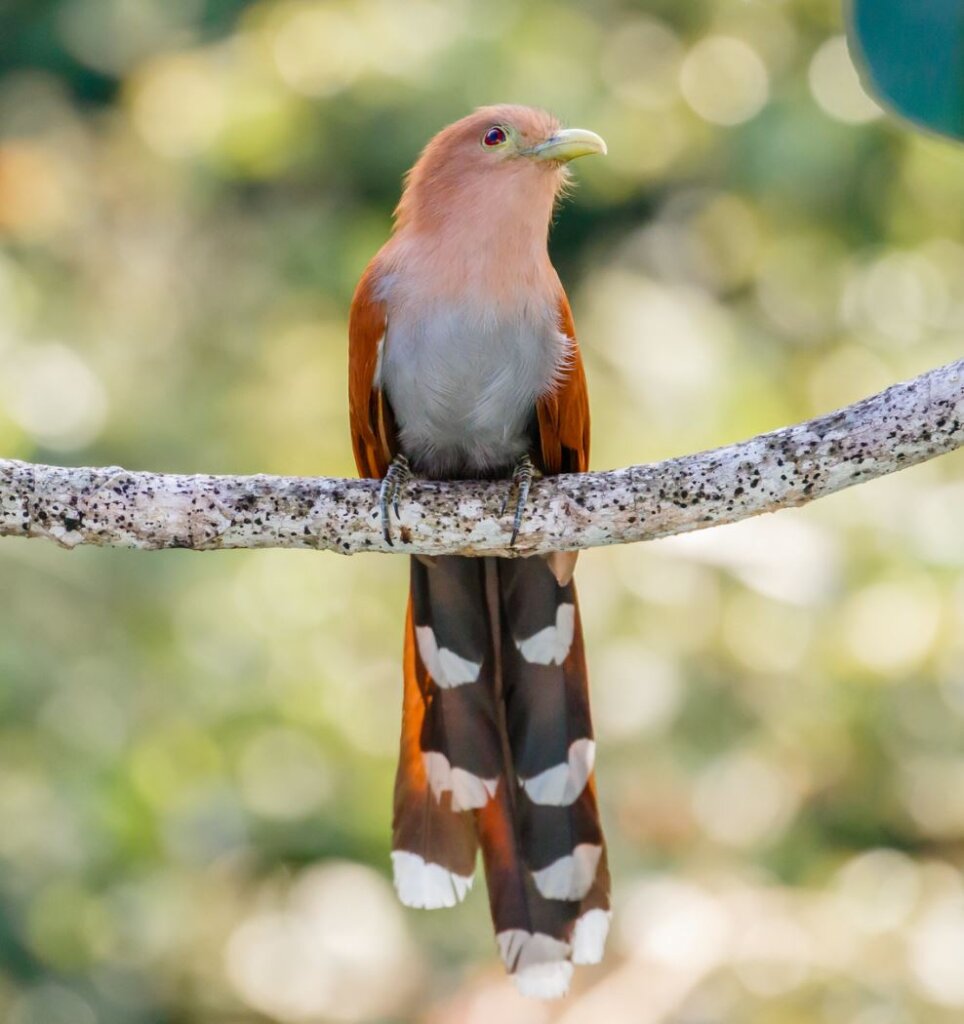
Photo Courtesy of PEHart/CC BY-SA 2.0
The squirrel cuckoo (Piaya cayana) is a large and active species of cuckoo with an extremely long tail measuring 40.5 to 50 centimeters long (15.9 to 19.7 inches) weighing in at 95 to 120 grams (3.4 to 4.2 ounces. Adult birds have mainly chestnut upperparts and head, becoming softer, almost soft pink on the throat. The lower breast is gray, the belly almost black, and central tail feathers rufous, with the outer ones having white tips. The bill is yellow and the eyes red.
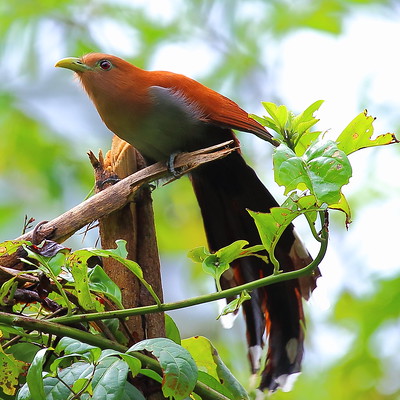
Photo Courtesy of ryanacandee/CC BY-SA 2.0
Juvenile birds have a grey bill and eyering, brown iris, with less white in the tail.
It is similar to the Black-bellied Cuckoo but is distinguished by having a yellow bill, and a cap of the same color as the back.
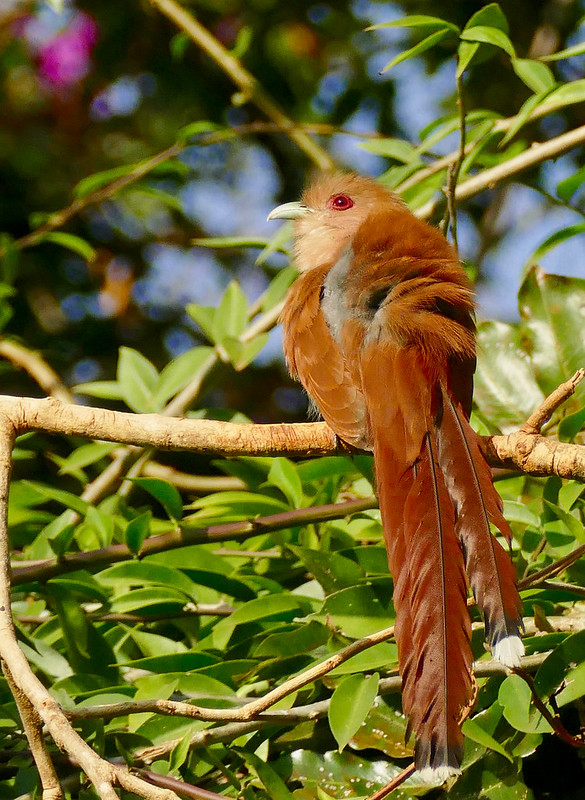
Photo Courtesy of Bernard DUPONT/CC BY-SA 2.0
These birds are from northwestern Mexico to northern Argentina and Uruguay and Trinidad.
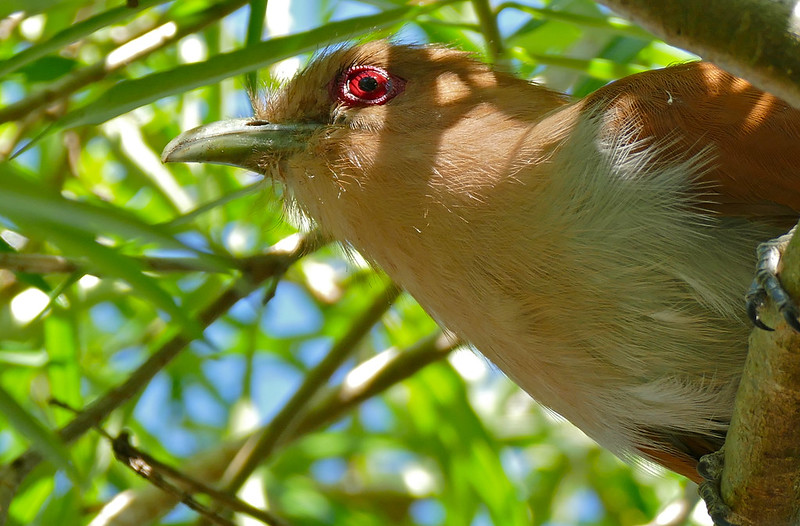
Photo Courtesy of Bernard DUPONT/CC BY-SA 2.0
Squirrel Cuckoo prefer to live in forests and woodlands, in the canopy, and along forest edges. It also frequents coffee plantations, shrubbery, pastures with trees, areas along watercourses in dry regions, and also residential areas. Avoiding dry wooded areas.
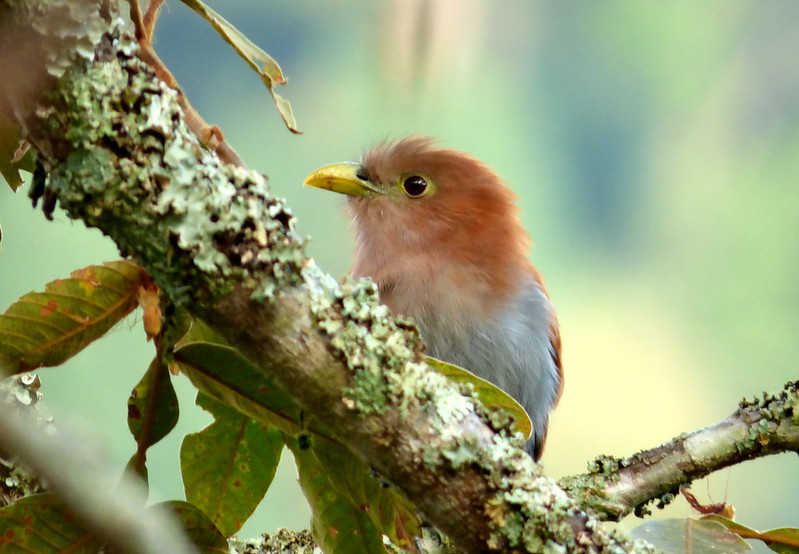
Photo Courtesy of Alejandro Bayer Tamayo/CC BY-SA 2.0
Squirrel Cuckoo dine mainly on insects, cicadas, wasps, and caterpillars, sometimes taking spiders and small lizards. Very occasionally eating fruit.
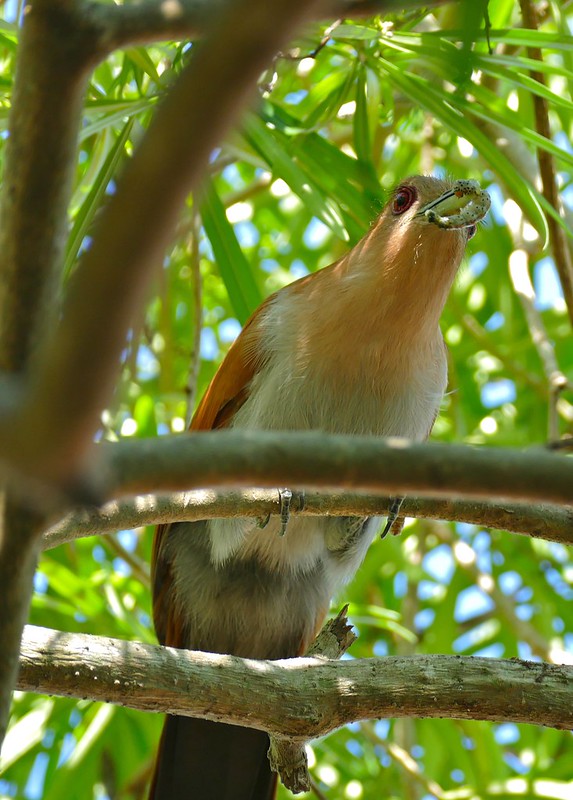
Photo Courtesy of Bernard DUPONT/CC BY-SA 2.0
During the breeding season, a shallow cup-shaped nest is built from sticks and leaves in dance foliage or trees. The female lays up to 3 eggs within and incubates along with the male for around 18 to 20 days. Chicks are fed and cared for by both 𝓈ℯ𝓍es as well.
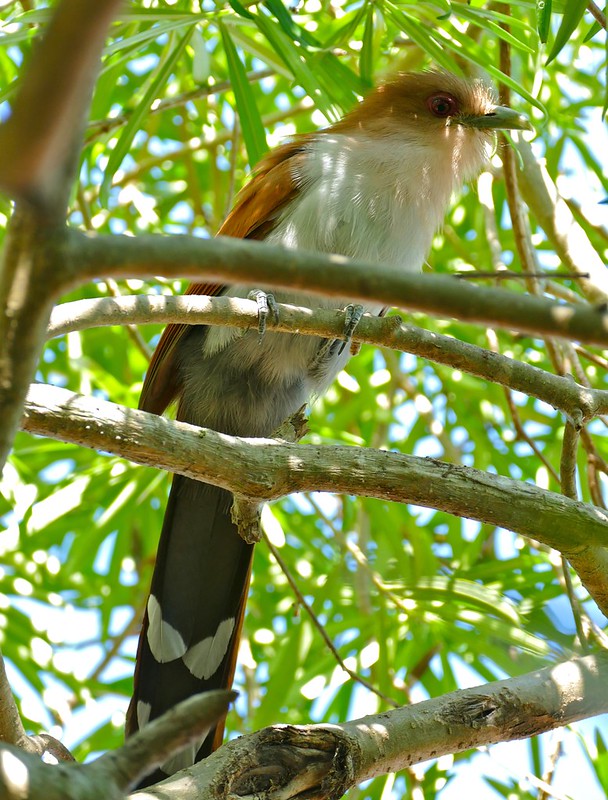
Photo Courtesy of Bernard DUPONT/CC BY-SA 2.0
The squirrel cuckoo is plentiful in most of its range and appears to be quite tolerant of human disturbance, as long as woodland remains.
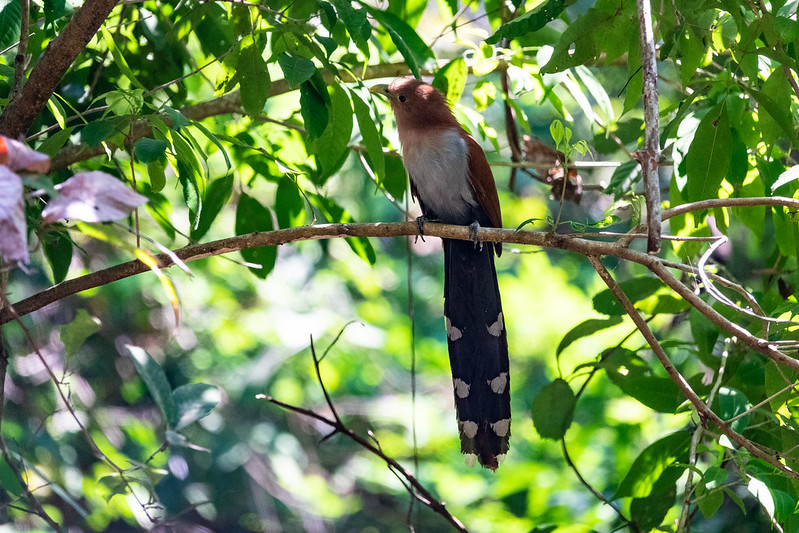
Photo Courtesy of s9-4pr/CC BY-SA 2.0
You can watch this bird right here in the video below:
This article uses material from Wikipedia.org which is licensed under the GNU Free Documentation License via Copyright Wikipedia. Images on this page are the sole property of the photographers (unless marked as Public Domain). Please read the license and or contact the photographers directly before using them for any purpose. Thank you all.
